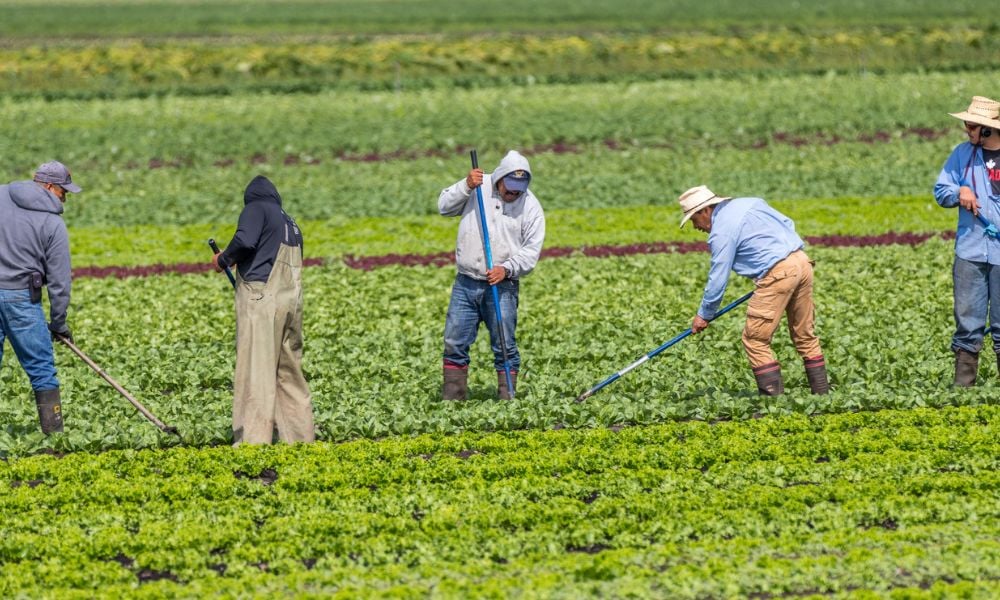Province 'should not wait for a tragedy to happen' says advocacy group

As Ontario experiences one of the hottest years on record, Justice for Migrant Workers (J4MW) has issued an urgent call for immediate emergency protections for the province’s agricultural workers. In an open letter addressed to Premier Doug Ford and Minister of Labour David Piccini, J4MW emphasizes the dire need for specific heat regulations to safeguard tens of thousands of farm workers from life-threatening conditions.
The open letter highlights the severe risk of heat exposure faced by farmworkers, who are 35 times more likely than the public to die from such conditions. Despite previous commitments from the Ontario government to enact heat regulations, no substantial measures have been put in place. "The province should not wait for a tragedy to happen before it passes legislation to protect the foundation of Canada’s food system: farm workers," the letter states.
On June 24, 2024, J4MW released a public statement demanding immediate action, a reiteration of a similar plea made last year. The letter claims the response from the Ontario government has been largely superficial, with no concrete regulations enacted to address the escalating heat concerns. "Farmworkers are raising the alarm regarding the hazards of air quality as well as the sweltering heat both in greenhouses and in the fields," the letter continues.
Taneeta Doma, an organizer with J4MW and a lawyer with the Migrant Farm Worker Legal Clinic, underscores the ongoing struggle of migrant workers. "Workers are experiencing heat stress and heat-related illnesses. They need enough breaks, access to shade and water, and different working hours depending on when heat waves strike," Doma explains. She adds current protections are insufficient and the province must implement regulations that address these specific needs.
Systemic exclusions and allegations of environmental racism
The open letter also draws attention to the systemic exclusions that migrant workers face under the Occupational Health and Safety Act and the Employment Standards Act. The Ontario Human Rights Commission has recognized access to cooling as a human rights issue, particularly affecting racialized, disabled, and low-income community members. "Denying migrant farmworkers, who are overwhelmingly racialized, who are more likely to be injured on the job, and who work long hours for little pay, is a form of environmental racism," the letter asserts.
The urgency of J4MW's demands is further underscored by recent developments in the United States, where the Biden administration has proposed a national heat standard aimed at protecting workers from extreme temperatures.
This move sets a precedent that Ontario is urged to follow. "The Ontario government needs to step up and implement regulations that particularly address the exclusions that agricultural workers face," says Doma.
Recommendations and future steps
J4MW is advocating for a comprehensive set of measures, including:
- Shutting down farms and paying workers during extreme heat events.
- Implementing specific heat stress protections and anti-reprisal measures.
- Ensuring paid breaks and providing sufficient shelters, functioning bathrooms, and drinking water.
- Allowing third-party complaints and extending OSHA protections to cover agricultural worker accommodations.
"Workers need to be at the forefront of any regulations that the Ontario government puts into place," insists Doma, calling for direct consultation with those affected.
As temperatures continue to rise, the call for immediate action to protect Ontario's agricultural workers grows louder. The Ford government holds the tools to address these long-standing issues, and urgent measures are needed to prevent further harm and ensure the dignity and safety of migrant farmworkers.





